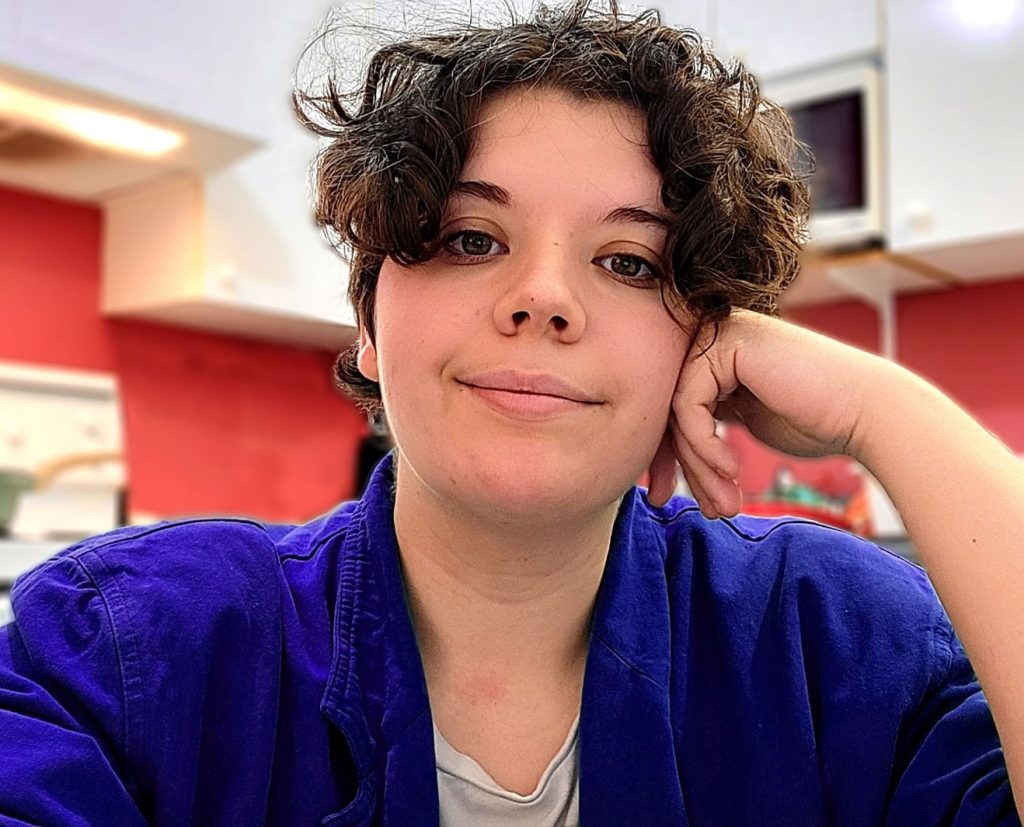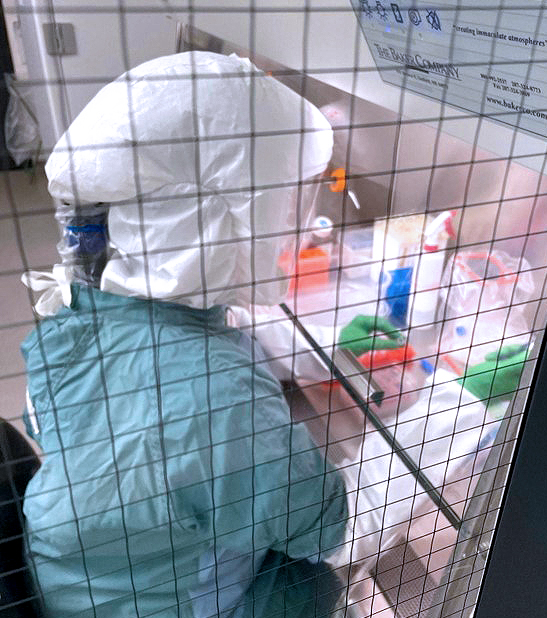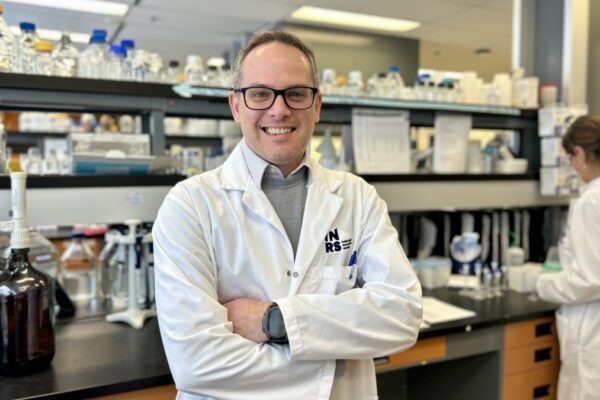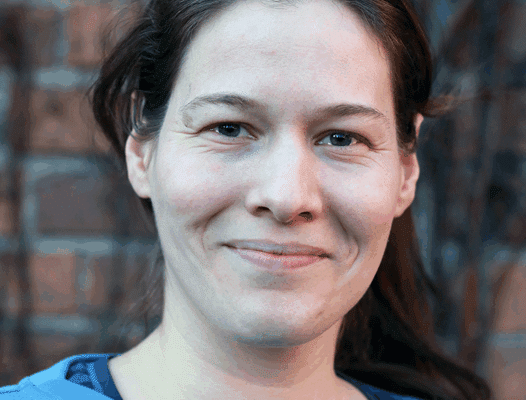- My Serial Research
The scientific curiosity behind research on a complex pathogen, SARS-CoV-2.

I’m a curious person by nature! There’s no question that this is what led me to basic research, more specifically microbiology research. I’m fascinated by the idea that organisms invisible to the naked eye can exist, evolve, and interact with each other and with us, and my desire to know more pushed me to pursue my PhD at INRS’s Armand-Frappier Santé Biotechnologie Research Centre.
Louis Pasteur once said, “To know how to wonder and question is the first step of the mind toward discovery.” I love this quote because it perfectly describes my curiosity and the way I see science.
Understanding pathogens and how they work
In 2022, I found myself at INRS working with Professor Laurent Chatel-Chaix, an expert on flaviviruses like Zika, dengue, and West Nile. However, my thesis is focusing on a different virus, one that needs no explanation: SARS-CoV-2.
When the pandemic started in September 2019, the research field was deployed to study the new pathogen in caused of COVID. Even if lots of research focuses on finding treatments and new vaccination, new targets of action can only be funded by the study of the virus itself.
My colleagues and I, are focusing on the interactions between mitochondria (the powerhouses of the cell) and the virus.
By studying how the cell interacts with the virus, we can better understand how pathogenic viruses infect the host, then replicate and spread. Moreover, finding more about host-pathogen interactions, will help to determined which pathways are affected and could be more studied in the optic of finding some treatments.
High-level infrastructure
When the pandemic began, Professor Chatel-Chaix allowed INRS to reopen a Level 3 (CL3) lab, which he currently supervises. CL3 labs allow researchers to handle dangerous pathogens, such as SARS-CoV-2, safely. The opening of the CL3 lab and the expertise of its researchers allowed me to create my PhD project, which involves studying how SARS-CoV-2 interacts with cellular organelles.

Working in a Level 3 lab is a unique and very educational experience. It’s a secure environment, which means we have a lot of procedures to follow to protect us and others. When working in CL3 we have to wear respirators so we aren’t breathing the air in contact with the virus, plus many layers of protection that make us look like astronauts! Also, the respirators make it hard to hear each other, so we’re constantly screaming “what?!” like in a retirement home (So we have to use sign language!).
With all these challenges, some might find research in a Level 3 lab cumbersome, but the results are definitely worth it!
Getting involved at school
Even though I spend a lot of time in the CL3 lab, I try to dedicate at least some time to improving student life and rights. It’s important to make students’ voices heard at the institutional level and provide them with the tools they need to succeed in their studies without being held back by social or economic barriers. As president of the INRS student federation (FE INRS), I work with my team to defend the rights of our student members and maintain a link between the different INRS campuses. Our goal is to help make our community a better place. Our mandate has just begun, so keep an eye out for our projects throughout the year!
Also, last year I had the opportunity to participate in the EDI committee’s “All Variables are Included” inclusion campaign. During this project, members of the LGBTQ2+ community and I made a podcast about the inclusion of sexual and gender diversity at the university. This topic is near and dear to my heart, because I believe that having role models and allies at school can truly improve student’ quality of life and educations. This project has allowed me to meet many wonderful people. It’s also allowed me to gain confidence and maturity, which has allowed me to become the president of the FE INRS.
I think it’s important to challenge yourself, in science and in life. Success always leads to growth!

To listen to the podcast



